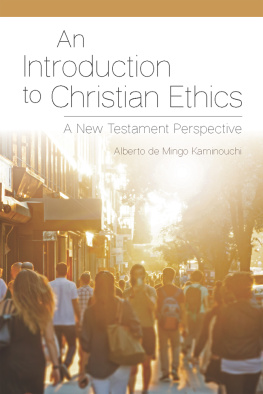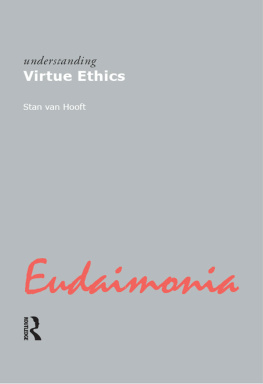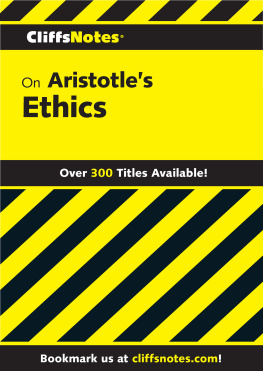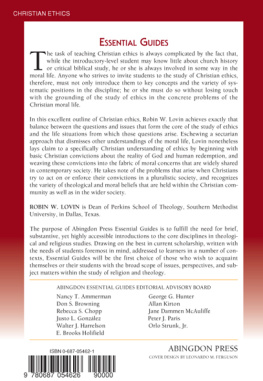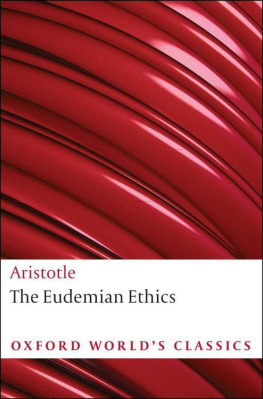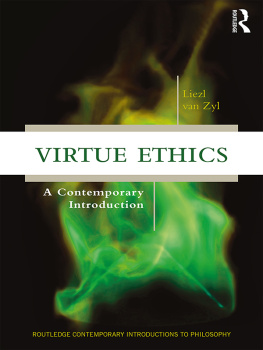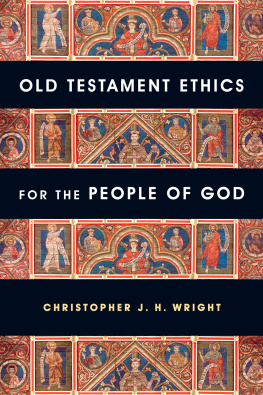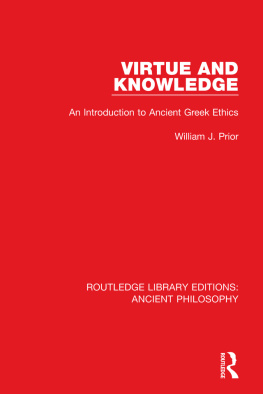Beginning with Aristotelian virtue theory as a framework for Christian ethics, de Mingo Kaminouchi looks at the theological virtues before turning to the Beatitudes. He gently moves the reader beyond seeing the Beatitudes as corporal and spiritual works of mercy to be performed for the sake of others. Instead he challenges us to see the Beatitudes as pertinent virtues for the moral life. Virtues that if cultivated help us respond to Gods call and change us over time in the image of Christ. In so doing he connects the moral life and the life of discipleship.
Kathryn Lilla Cox
Visiting Research Associate
University of San Diego
The author wisely and helpfully sets the stage for his presentation by concisely narrating the five centuries of Catholic moral theology and its renewal in the decades around the Second Vatican Council. In so doing, de Mingo Kaminouchi introduces readers to a wide range of voices in Catholic moral theology, some more familiar (Curran, Ratzinger, Fuchs, Hauerwas, Rubio, and Hring) and others less familiar, especially voices from Spain that rarely get a hearing among North American readers. The structure of the book is masterful, giving teachers and students solid foundations for an ongoing consequential discussion of Christian ethics in a world that continues to struggle to find its own grounding for conversations about value, character, and ethics. This introduction is a solid grammar of Christian ethics, and it deserves to find a home in the classrooms of North American colleges and seminaries.
Christopher McMahon, PhD
Professor of Theology
Saint Vincent College
Thoroughly rooted in Scripture and history, comprehensive but never tedious, accessible without sacrificing deptha lucid and engaging introduction to the beauty of the Christian story and life lived in response to it.
Kate Ward, PhD
Assistant Professor of Theology
Marquette University
Athens meets Jerusalem in this splendid text that introduces students to contemporary virtue ethics. Alberto de Mingo Kaminouchi covers a great deal of ground: a survey of the history of moral theology, the Christian moral life as configuration to Christ, Aristotelian virtue ethics, and the ethics of the Beatitudes. The book is written in a lucid, engaging style that invites a response to the life of happiness it describes.
Nickolas Becker, OSB
Assistant Professor of Theology
Saint Johns School of Theology and Seminary
Special thanks to Liturgical Press for bringing such an eloquent translation of the signature work of Alberto de Mingo Kaminouchi into the English-speaking world. De Mingo is that rare Catholic bridge builder who spans biblical theology with theological ethics and introduces us to the grammar of virtue as we learn from revelation to be configured by Christ. Rightly he unfolds for us the beatitudes at the heart of this remarkable lesson and then concludes with an introduction to the three forms of love. I cannot recall ever such a compelling and ultimately satisfying introduction to Christian ethics. Bravo!
James F. Keenan, SJ
Canisius Professor
Boston College
Cover design by Monica Bokinskie. Cover photo courtesy of Getty Images.
Originally published as Introduccin a la tica cristiana, by Alberto de Mingo Kaminouchi. Copyright by Ediciones Sgueme S.A.U., Salamanca 2015.
Scripture text translations in this work are by the translator.
Excerpts from documents of the Second Vatican Council are from Vatican Council II: Constitutions, Decrees, Declarations; The Basic Sixteen Documents, edited by Austin Flannery, OP, 1996. Used with permission of Liturgical Press, Collegeville, Minnesota.
2020 by Order of Saint Benedict, Collegeville, Minnesota. All rights reserved. No part of this book may be used or reproduced in any manner whatsoever, except brief quotations in reviews, without written permission of Liturgical Press, Saint Johns Abbey, PO Box 7500, Collegeville, MN 56321-7500. Printed in the United States of America.
Library of Congress Cataloging-in-Publication Data
Names: De Mingo Kaminouchi, Alberto, author.
Title: An introduction to Christian ethics : a New Testament perspective / Alberto de Mingo Kaminouchi ; translated by Brother John of Taiz.
Other titles: Introduccin a la tica cristiana. English
Description: Collegeville, Minnesota : Liturgical Press, 2020. | Originally published as Introduccin a la tica cristiana, by Alberto de Mingo Kaminouchi, Copyright by Ediciones Sgueme S.A.U., Salamanca 2015. | Includes bibliographical references. | Summary: An introduction to Christian ethics which examines the New Testament through three concepts of Aristotles ethics: happiness, virtue, and loveProvided by publisher.
Identifiers: LCCN 2020010678 (print) | LCCN 2020010679 (ebook) | ISBN 9780814688090 (paperback) | ISBN 9780814688120 (epub) | ISBN 9780814688120 (mobi) | ISBN 9780814688120 (pdf)
Subjects: LCSH: Christian ethics. | Aristotle. | Ethics. | Bible. New TestamentCriticism, interpretation, etc.
Classification: LCC BJ1275 .D41513 2020 (print) | LCC BJ1275 (ebook) | DDC 241dc23
LC record available at https://lccn.loc.gov/2020010678
LC ebook record available at https://lccn.loc.gov/2020010679
Contents
Introduction
From the very beginning, Christians understood that the response to the gift of faith encompasses ones entire existence. Being a Christian does not essentially mean accepting a series of ideas about God, but rather living a life transformed by the Holy Spirit in the service of the good news of Gods Reign proclaimed by Jesus. Christian ethics is the name that we give to our reflections concerning this lived-out response to Christ.
Being a Christian is a question of practice; we learn to follow Christ by walking in his footsteps. For this reason, one of the names used by the church to refer to itself in the early days was the Way. Christianity is not a theoretical system, but an existential response to the revelation of God in Jesus, sustained by the power of the Spirit. It is life. Theological reflection comes afterwards, trying to articulate explanatory models of what has occurred, of the way we are living and why. Moral theology is the branch of theology that is concerned with the practical dimension of faith: for this reason, Christian ethics and moral theology are synonyms.
This book is an attempt to investigate the circular process established in the New Testament between faith and action, between Gods revelation and the response of the believer. Christian life can be understood as the process of transformation that welcoming the Good News of Jesus sets in motion, but this process cannot be sustained over time if there is no real change. For this reason, if believers do not collaborate by their own efforts with the action of the Holy Spirit, the force of the Gospel will ultimately be dissipated. When we do not live out what we believe, faith in the God who changes our being can end up being foreclosed.
One of the new developments that, in the past few decades, have enriched the panorama both of moral theology and of theological ethics has been the return to Aristotelian virtue-ethics, viewed as a fruitful framework to rethink morality at this time of crisis in the modern world. Such diverse men and women as the Indian economist and Nobel Prize winner Amartya Sen, the Canadian philosopher Charles Taylor and the Scottish philosopher Alasdair MacIntyre have made use in various ways of the ethical legacy of the great Greek philosopher to propose alternatives to the present situation. From differing perspectives, each of them has pointed out that the cause of the current crisis in the Western world is a cultural, economic and political system that has rejected, in the name of individual freedom, the project of a happiness shared in common with others.

